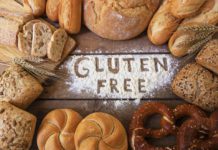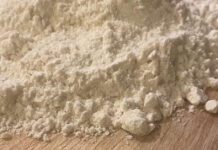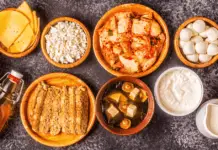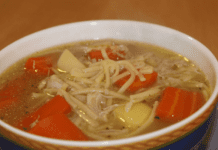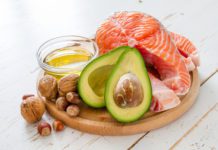Eating can be challenging when living with conditions like pemphigus vulgaris or ulcers. While adequate nutrition is important for healing, finding nutritional foods that aren’t abrasive and are easy to chew and swallow isn’t always easy. In this article, we’ll explore 10 soft foods for sore mouth due to pemphigus vulgaris and ulcers.
The information provided is for general informational and educational purposes only. It is not intended as medical advice, and it should not be used to diagnose or treat any health condition or illness. Always seek the advice of a qualified healthcare provider with any questions you may have regarding a medical condition or your individual health.

Whether you’re suffering from oral blisters or painful lesions of pemphigus vulgaris or discomfort from ulcers, eating can be an excruciating event. A soft food diet for sore mouth will include foods that can easily dissolve with little to no chewing.
Table of Contents
What is a soft food diet
A soft food diet is a diet modification consisting of food that is pureed, mashed, ground, and moistened. The best soft food diet for sore mouth will include foods that are easy to chew and swallow.
This type of diet is optimal for people experiencing discomfort from oral lesions, sores, and ulcers. Soft food eliminates the risk of scraping, jabbing, or biting sore and inflamed tissue. This gives the mouth the opportunity to heal.
Soft food diet for sore mouth due to pemphigus vulgaris
Pemphigus vulgaris is a rare autoimmune disease that causes painful blisters and lesions on the skin and mucous membranes. Blisters burst easily, leaving open sores. Skin that is affected peels easily when rubbed. Areas affected include the gums, hard and soft palette, inner cheeks, and throat.
When blisters form in the mouth or throat, it can be difficult to eat or even speak. Oral blisters may make it hard to chew or swallow. Lesions also have an increased risk of getting infected.
Soft foods reduce the risk of injuring lesions from teeth or crunchy foods.
Foods to eat for pemphigus vulgaris should include anti-inflammatory fruits, vegetables, grains, and proteins. Foods rich in vitamins A, C, E and omega-3 fatty acids can help reduce inflammation.
Soft foods to eat with mouth ulcers
Mouth ulcers are sores or erosions of the soft tissue inside the mouth. There are different types of mouth ulcers including canker sores and oral lichen planus. Recurring ulcers can also be a sign of anemia or vitamin deficiency. The most common cause is trauma to the mouth.
Mouth ulcers are characterized by persistent pain and difficulty eating.
Like pemphigus vulgaris, ulcers are prone to injury from hard foods as well as infection. Soft foods rich in vitamins, minerals, and antioxidants will help promote tissue repair and reduce inflammation.
You May Also Want To Read
12 Tips for Living With Pemphigus Vulgaris
How to Manage Your Autoimmune Disease With Dietary Changes
Free Constipation Printable List of High Fiber Foods
30+ Amazing Gluten-Free Soup Recipes to Warm Up Your Fall and Winter
What foods can you eat on a soft food diet
The best foods for someone dealing with pemphigus vulgaris or ulcers will depend on the severity of your condition. Some of the foods listed below are creamy and require no chewing. Others are soft but require gentle chewing. Use your best judgment or contact your healthcare provider for further direction.
Below is a list of nutrient-rich foods that contain vitamins and minerals to promote healing.
10 Soft Foods for Sore Mouth Due to Pemphigus Vulgaris and Ulcers


- Mashed potatoes can be made with either sweet or white potatoes. Both provide dietary fiber, B-complex vitamins, and antioxidants. In addition, sweet potatoes have anti-inflammatory properties making it an ideal food for sore mouth.
- Pureed Vegetables like carrots, squash, string beans, and broccoli are rich in vitamins and minerals. Steam until tender, then puree.
- Soup made with a variety of pureed vegetables is an excellent source of vitamins and minerals including vitamins A, B, C, D, E, and K, making it an optimal food for mouth ulcers. Allow soup to cool to avoid burning or irritating open sores and ulcers.
- Yogurt is a good source of protein and rich in probiotics. Dairy free and gluten-free options are available for those on restricted diets. Plain, unsweetened yogurt is best as added sugars can cause irritation.
- Smoothies consisting of fruits, leafy green vegetables, yogurt, and protein powder are easy to consume and nutrient dense.
- Tofu, which is made from bean curd, is a good source of protein and comes in a variety of textures. Silken tofu has a gentle texture and can be added to soups or smoothies.
- Mashed avocado has a soft, creamy texture. It’s an excellent source of omega-3, fiber, and a host of vitamins and minerals. It also has a mild flavor which makes it a good candidate for any healthy soft food diet.
- Applesauce is naturally sweet and contains soluble fiber, vitamin C and antioxidants. Choose the unsweetened varieties to get the biggest health bang for your buck.
- Cooked oatmeal is soft, warm and filling. It’s also high in dietary fiber, and is a great source of complex carbohydrates.
- Scrambled or boiled eggs are high in protein and heart healthy nutrients like folate, B vitamins and potassium. Just don’t put too much salt on them because that can irritate a sore mouth.
- Mashed bananas are an excellent source of potassium. They can be eaten alone or added to oatmeal or smoothies. Bananas add a natural sweetness.
- Cottage cheese is soft and easy to eat and it’s a good source of calcium and protein. Serve with soft fruits, over baked potato, or served by itself for a nutritious snack or meal.
Choosing soft foods with minimal seasonings will help avoid further irritation with oral conditions like pemphigus vulgaris and ulcers.
Summary
A soft food diet plays an important role in managing the discomfort associated with conditions like pemphigus vulgaris and mouth ulcers. By incorporating these soft and nutritious foods into your meals, you can support the healing process while maintaining a well-balanced diet. Be sure to consult with your healthcare provider or nutritionist for personalized dietary recommendations catered to your individual needs.
For more information on pemphigus vulgaris, visit the International Pemphigus and Pemphigoid Foundation.









